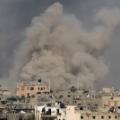At least four people have died in Japan’s Ishikawa prefecture following a 7.5 magnitude earthquake that struck Japan on Monday, according to local authorities.
Two people are also reported to have been seriously injured by the quake, officials said.
By Helen Regan, Sana Noor Haq, Antoinette Radford and Elise Hammond, CNN
From CNN’s Chie Kobayashi in Tokyo and Eve Brennan in London
At least four people have died in Japan’s Ishikawa prefecture following a 7.5 magnitude earthquake that struck Japan on Monday, according to local authorities.
Two people are also reported to have been seriously injured by the quake, officials said.
From CNN's Sam Fossum
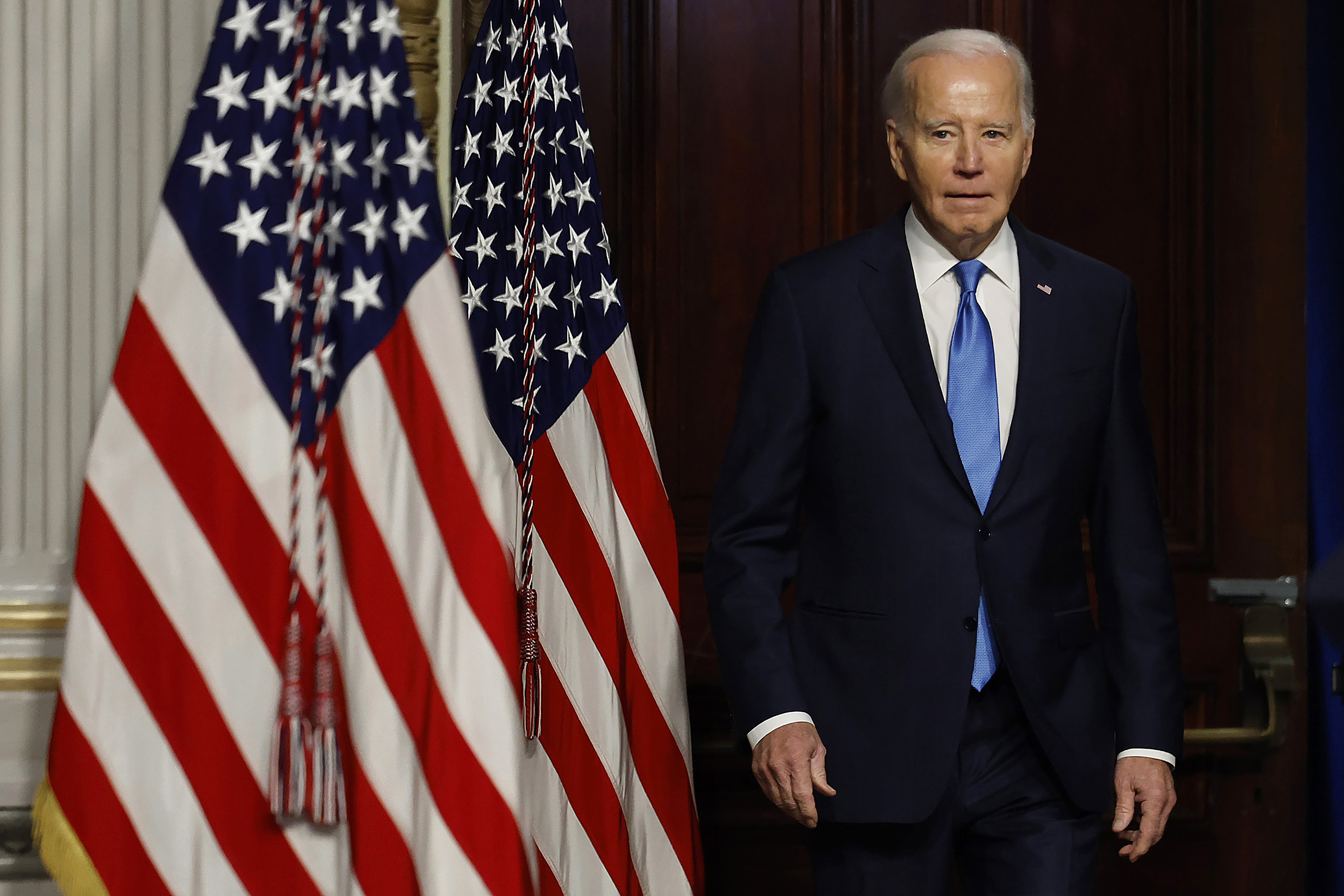
US President Joe Biden is extending support to Japan after a powerful earthquake shook the western area of the country on Monday.
The Biden administration is in touch with Japanese officials, and the United States "stands ready to provide any necessary assistance for the Japanese people," according to a statement.
“As close Allies, the United States and Japan share a deep bond of friendship that unites our people. Our thoughts are with the Japanese people during this difficult time,” Biden said in the written statement.
From CNN's Junko Ogura in Tokyo and Jonny Hallam
Four bullet trains that came to a halt between the cities of Toyama and Kanazawa in Japan's Ishikawa prefecture during Monday's powerful earthquake remained at a standstill on Tuesday local time.
Japan's public broadcaster NHK, citing Japan Railways West, reported that nearly 1,400 passengers continued to be stranded inside the immobile high-speed trains more than 10 hours since the powerful tremor shook the region.
From CNN's Hanako Montgomery in Tokyo
The tsunami warnings along portions of Japan’s western coast have been canceled as the threat of additional large waves diminishes.
While the threat of larger waves has now passed, tsunami advisories for waves up to 1 meter (about 3 feet) remain in effect.
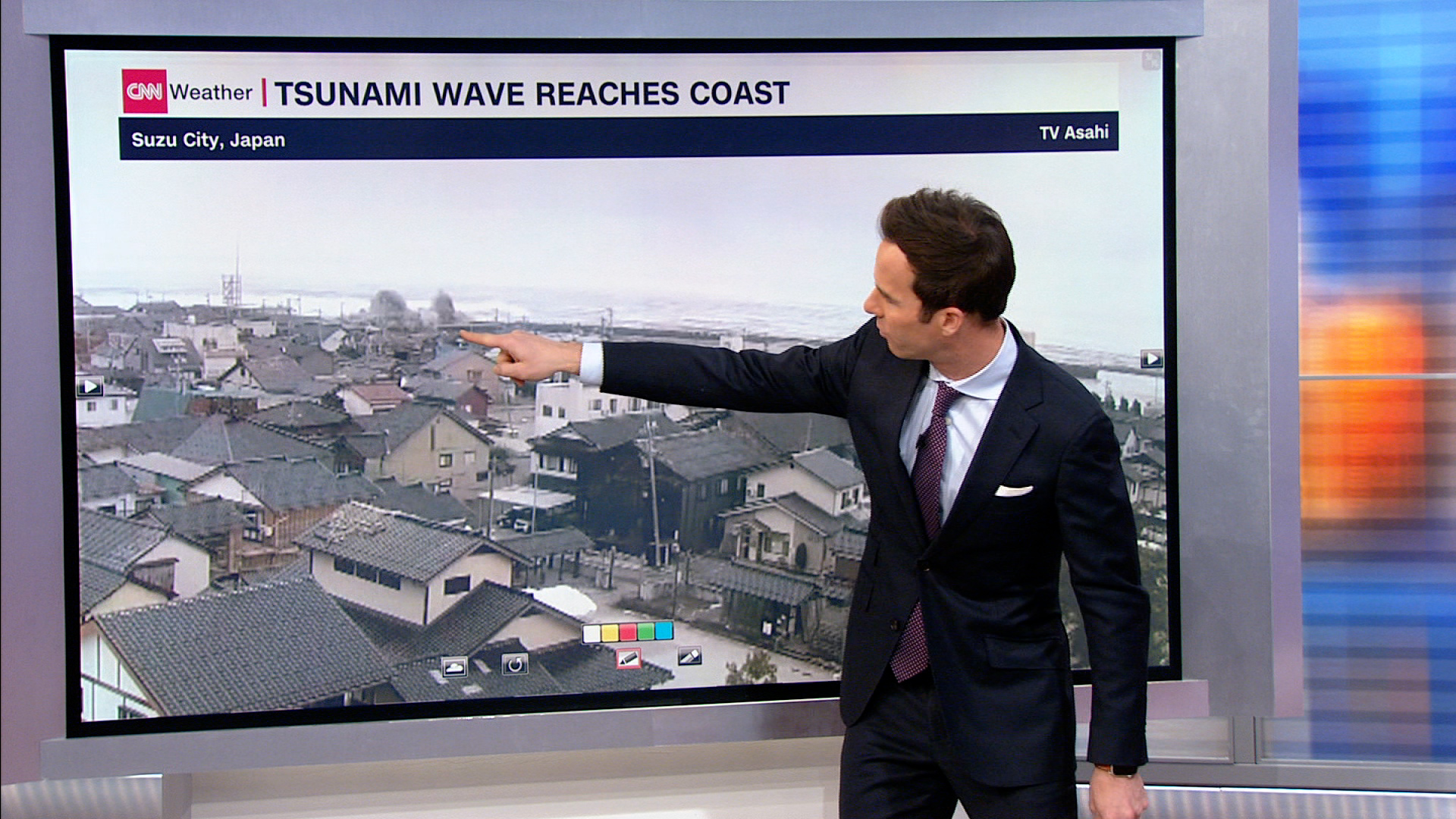
While a wave that struck a protective sea wall in the western Japanese city of Suzu "could have been a lot worse," according to CNN meteorologist Derek Van Dam, there is still a threat of tsunami waves following a 7.5 magnitude earthquake.
The video shows the sea wall as a barrier for the city, which is on the opposite side of the peninsula where the earthquake occurred.
“Think of it as if you had a bathtub full of water and you were to drop a rock inside of it. It creates waves that propagate in all directions. They reach the side of your bath and then come in towards the center again. Same idea here,” he said.
Watch his full analysis here:
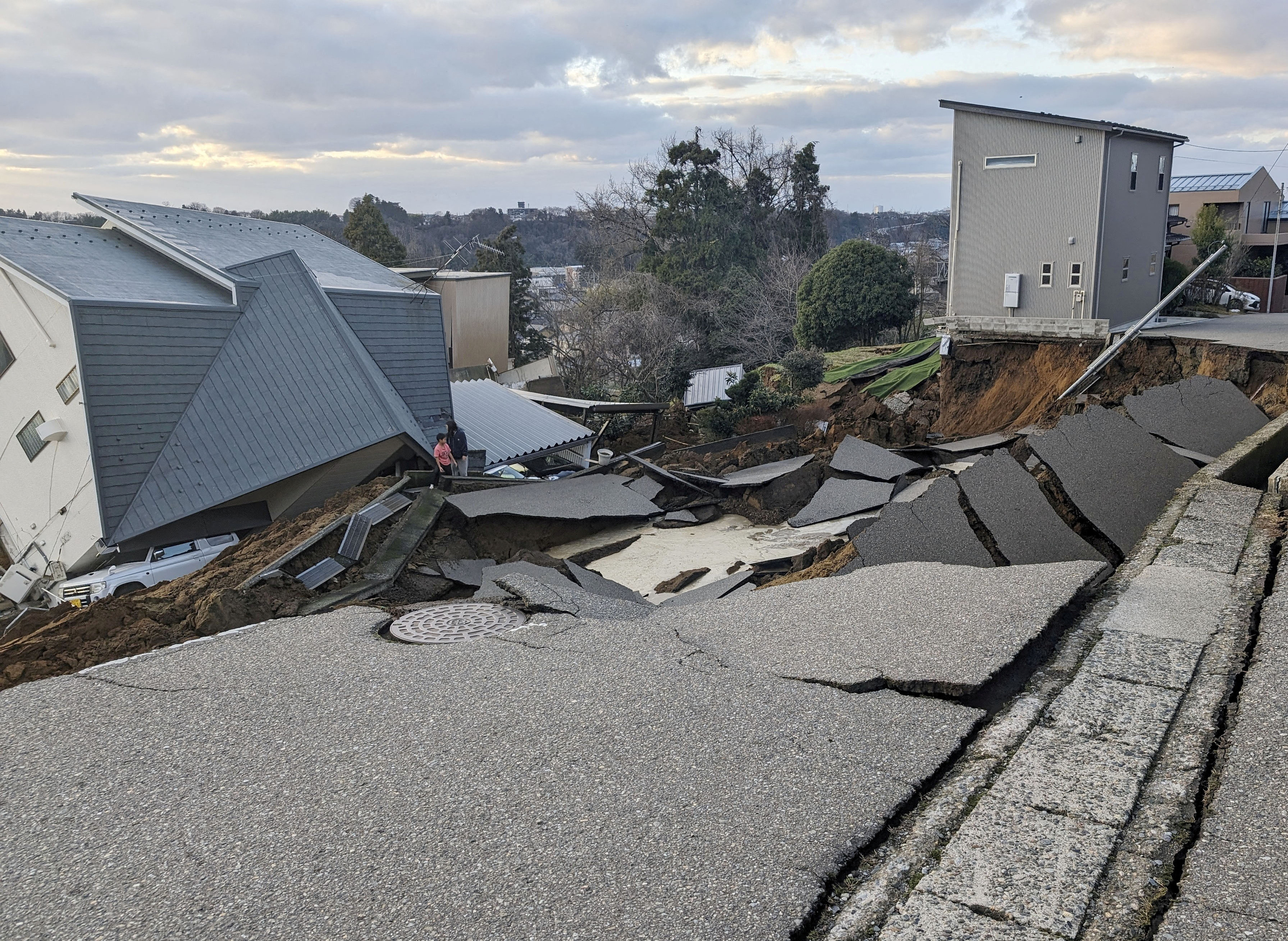
A seismologist with the US Geological Survey warned that aftershocks caused by the 7.5 magnitude earthquake that struck western Japan on Monday could last for months.
Susan Hough said people living in that part of the country have felt earthquakes before, but she believes this is “the biggest earthquake by far” — which means most residents likely don’t have experience with a seismic event of this scale.
“An earthquake this big is going to continue to have aftershocks. It could easily have aftershocks bigger than magnitude 6, so that is going to be a hazard in its own right,” Hough said.
The initial earthquake collapsed buildings, caused fires and triggered tsunami alerts as far away as eastern Russia, prompting orders for residents to evacuate affected coastal areas of Japan.
In 2011, a 9.1 magnitude earthquake in eastern Japan caused a tsunami with 30-foot waves that damaged several nuclear reactors. Hough said, comparatively, while the risk of a tsunami of that 2011 size is less likely in the case of Monday’s earthquake, people living near the coast should still evacuate.
Some of the first reports came from the city of Wajima in Ishikawa prefecture, which saw tsunami waves of around 1.2 meters (3.9 feet) around 4:21 p.m. local time, according to Japanese public broadcaster NHK.
Ultimately, location plays a major part in how big of an impact an earthquake can have, Hough added.
Hough said this earthquake was shallow. "Where the fault was moving was very close to where people were living, and that can concentrate shaking close to where the earthquake happened. The energy just doesn't have a lot of time to travel and spread out before it gets close to where people live," she explained.
Taiwanese tourist Johnny Wu was waiting for a bus home when the earthquake struck western Japan, describing people as "panicked" once the shaking started.
"You can see all the snow from the the electric wire goes down, and also (the snow) from the roof fell down and all the cars are shaking. And so everybody was panicked at that time," he told Reuters.
Wu said he has experienced earthquakes, but he was "still worried about (the quake) getting more serious."
Baldwin Chia, a 38-year-old tourist from Shanghai, said he was with a group of snowboarders and described the quake as "pretty massive."
"The whole room was shaking, the TV was shaking. I had to keep everything on the table. ... I did feel safe in my room, though. But everything else was shaking," he told Reuters.
Chia said his friends were outside at the time of the earthquake, adding "my first instinct was also just to text them, to see if they're OK. Definitely I was asking about the (possible) avalanches."
"It is quite scary, definitely. You know, when you hear about earthquakes in Japan, you wouldn't expect one to, you know, to actually experience one," he said.
From CNN staff
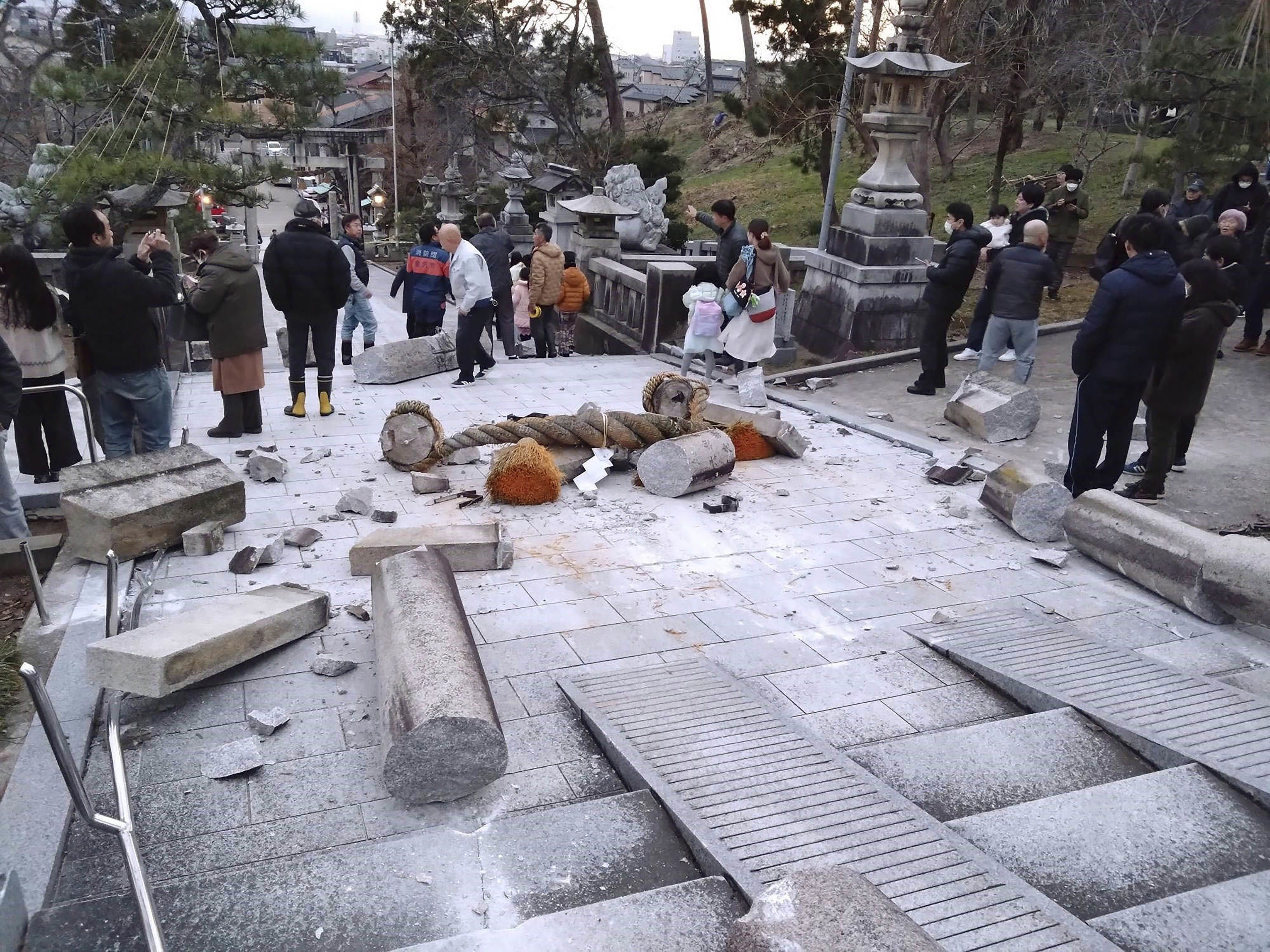
A powerful 7.5 magnitude earthquake struck western Japan on Monday afternoon, triggering tsunami waves and causing damage to roads, power, transport services and infrastructure.
Japanese officials warned residents in affected areas to evacuate to higher ground, as 1,000 military personnel from the Self-Defense Forces were dispatched to aid rescue and recovery efforts.
Here are the latest developments:
From CNN's Mayumi Maruyama
Japan is dispatching 1,000 military personnel to help rescue and recovery efforts following the 7.5 magnitude earthquake on Monday, the country's defense minister has said.
Minoru Kihara told reporters some members of the country's Self-Defense Forces have already reached the cities of Wajima and Suzu in Ishikawa prefecture.
Another 8,500 are on standby, he added.
Officials in several cities in Ishikawa prefecture reported damaged buildings, power outages, fires and cracks in roads.



